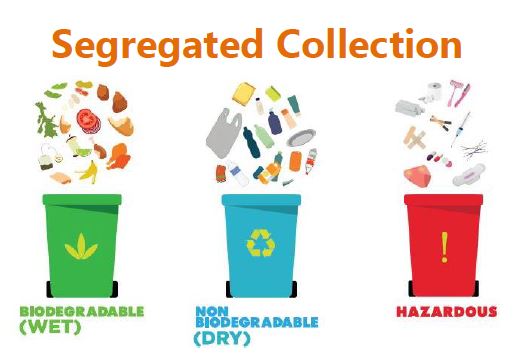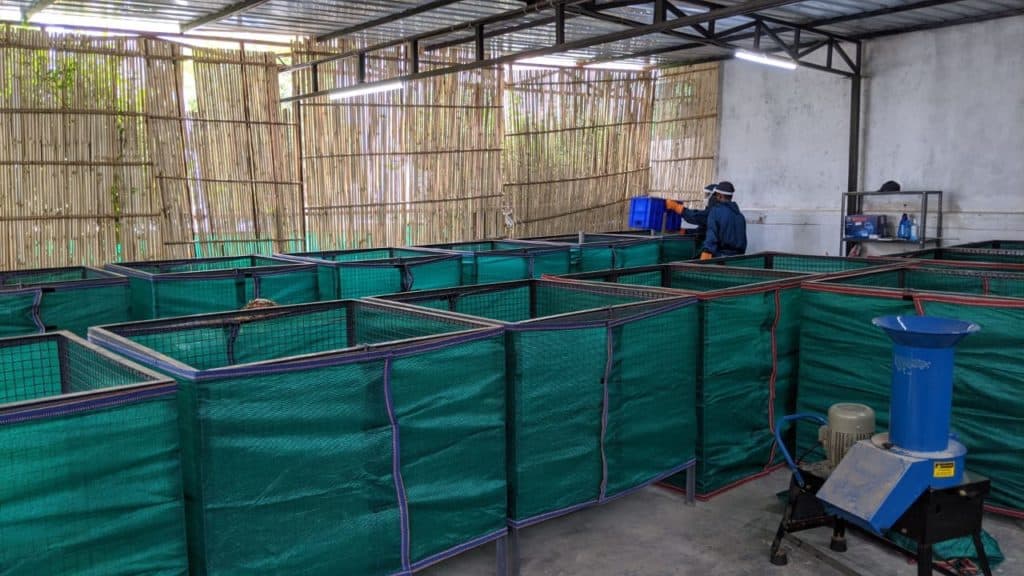In today’s fast-moving world, convenience is leading to consumerism. The convenience of getting things delivered to our doorstep and the abundance of choice has turned us into impulsive buyers. What we fail to realize is that every order placed, every return initiated, every dish cooked, every fruit eaten is generating some waste.
In cities, due to higher population density and higher spending power, the quantum of waste generation is also high. Therefore, decentralization of waste management is something which makes the entire exercise easier and more sustainable for cities.
But what is decentralised waste management? It refers to a system wherein waste is processed at or near its source of generation and does not have to be transported over long distances to be eventually processed at a single remote location. The level of decentralization can vary, with processing being done either at the individual household level or a housing society level. or even at a broader ward/sector/cluster level.
Why decentralisation?
Imagine if we lived in a world where people did not cook at home but had to go to a community kitchen set up in every city/town to prepare or get their meals. Can you imagine such a system to be very effective?
Decentralized waste management has the same benefits that we get when we choose to cook our food at home, or go to a nearby restaurant instead of relying on a single community kitchen in the city. You have better quality control and it is also more economical. Not all your eggs are in one basket, and if the community kitchen is dysfunctional on any day, the entire city doesn’t have to go hungry!
Decentralized waste management ensures better waste segregation through better monitoring and quick feedback. The level of segregation defines the cornerstone for any waste management project; with efficient segregation, half the battle is won already.
Transportation emissions are low or negligible in a decentralized system. Also, in centralised systems where the quantity of waste runs into multiple tons, the quantity can’t be handled manually; therefore, fully mechanised systems with heavy machinery are preferred.
In contrast, in decentralised waste management where quantity could range between a few quintals to a couple of tons, such facilities can resort to natural composting or semi-mechanised composting methods that require less or smaller machines, and more manpower, therefore creating more jobs.
The most important factor that comes with the decentralized system is community engagement. When you know your waste is being processed within your society and you know the person who is processing your waste by name and face, you will care more not to put a blade or a broken glass in the kitchen waste that could hurt him/her.
What can cities do?
The whole concept of sustainable waste management is relatively new to India. Some cities are doing better than others due to various reasons, which include awareness levels, socio-economic status and space availability. At a policy level, the government has done a decent job at the policy level by revising Solid Waste Management (SWM) rules in 2016. Swachh Bharat remains the talk of the town and there is a general buzz in cities as the Swachh Survekshan date comes close each year.
Watch the Citizen Matters webinar on Swachh Survekshan here.
However, city municipal corporations (CMCs) must stop looking at ‘swacchata’ (cleanliness) only from a ratings point of view. Rather the focus should be on formation of bylaws in line with SWM 2016 and creation of a step-wise implementation strategy.
As an individual or a housing society, the first step is to start segregating your waste at source, into three streams: Wet kitchen waste, Dry (recyclable) waste and Domestic hazardous waste.

The next thing that an individual or a housing society can do on its own is to process their segregated kitchen waste through Composting or Bio-methanation. Convincing RWAs to set up decentralized composting plants is doable if CMC is serious about facilitating implementation.
The challenges faced by RWAs are generally space constraints, lack of technical and operational understanding, non-cooperation of residents for source segregation and in some case, shortage of funds.
All or most of these can be addressed by CMCs through allocation of nearby land, empanelment of multiple agencies with effective technologies and good work ethics, empanelment of NGOs for carrying out awareness activities and by providing some rebates for waste management or by inviting corporates to pump in corporate social responsibility (CSR) funds.
How are communities in Gurugram doing it?
It was in 2018 that the Municipal Corporation of Gurugram (MCG) came out with a notification for bulk waste generators. As per the notification, any commercial or residential organization generating more than 50 kg of waste a day shall be considered as a bulk waste generator. For bulk waste generators, on source treatment of wet waste was made mandatory. This pushed RWAs in Gurugram to think about the way they were disposing of their waste.
RWAs in the city explored the possibilities of implementing a decentralized waste management system. High rise societies and bulk waste generators like North Close, MGF Vilas, DLF Wellington, DLF Princeton adopted community composting solutions in their campuses.

These composting plants are helping the societies process their wet waste, which forms almost 50% of the total waste arising from all the households, in situ. The remaining waste is dry and constitutes items like plastic, metal, glass, hazardous waste etc. which is handed over to authorised waste collectors.
Every household is provided with three kinds of bins:
- Green bin for wet waste,
- Blue bin for dry waste and
- Red bin for hazardous waste.
The wet waste comes to the composting facility that is mostly situated inside the premises of the societies. The facilities are small, covered with sheds and have big composting bins.
After three-bin segregation at the household level, the wet waste undergoes a secondary segregation at the composting facility. At times, families end up putting waste like plastic wrappers, tins, aluminium foil in the wet waste bin by mistake. This is known as reject waste and if left unsegregated, might cause the quality of compost to deteriorate. Therefore, these items have to be sorted from the wet waste at the time of secondary segregation.
Once the secondary segregation is done, the wet waste is then dumped into the composting bins. After a gestation period of 30 to 35 days, a fully organic and rich compost gets ready. This is used in the community’s gardens and plantation, making the soil healthy.
These decentralized waste management systems have helped practising RWAs in a big way. They are not only ensuring compliance with the municipal law but are also promoting healthy and sustainable waste management systems.
The role of the Municipal Corporation
MCG has played a critical role in promoting these decentralized waste management systems. In 2018, it announced award of financial aid for capital investment, or setting up composting facilities. However, these funds were not utilized by many of the RWAs.
Currently, MCG has a policy of waiving off the service charge for collecting dry waste from those RWAs which are implementing decentralized waste management systems; secondly, it also promises to buy back some of the compost that is generated at Rs 5 a kilo. However, these initiatives look stronger on paper and lack ground implementation.
MCG can also learn from other civic authorities that are engaged in promoting these decentralized waste management systems. For example, the Noida Authority subsidises the creation of a composting facility by almost 90% to 95%. 80% of the funds are invested by Noida Authority while 10% is raised by the way of CSR funds and the remaining 10% is provided by the bulk waste generator itself.
How to choose the best community composting solution?
While choosing a composting solution, the final environmental impact of the composting solution should be the primary deciding factor. Remember, at the end of the day all this is being done for environmental benefit.
These following four thumb rules should be kept in mind while choosing a composting solution:
- Keep it close. Process the waste as near to the source of generation as possible; unnecessary transportation or off-site composting should be avoided.
- Let nature do most of it. Composting is a natural process, Machines can only aid in transformation of waste into more manageable or quickly compostable form, but ultimately the process of composting is to be carried out by microorganisms. Lower the level of mechanization, better it is.
- Take it slow. Composting is a natural process, any solution claiming to compost in 24 or 48 hours is not a composting solution but an incinerator. A decent quality of compost should be processed and cured for 4-6 weeks.
- Let it breath. Decomposition of wet waste can happen either in the presence of air (Aerobic) or in its absence (Anaerobic). Decomposition in absence of air causes methane generation. If the methane is tapped as an energy source, like in a bio-methanation plant, then it is well and good; otherwise, the composting solution should be aerobic to the largest extent possible, to minimize methane generation.
Good initiative by the RWAs. Is it hard to segregate at the source, HOME? Charity begins at home. Mother is the greatest TEACHER. Father too!
Practice at home. Do I check. Keep the dry waste only once or twice a week. Make children part of the job of segregation. I saw a video of the children at school in Japan. The children flatten the tetra pack and dispose in the designated bin!!!
Something to learn even by the elders. It is a fun activity also.